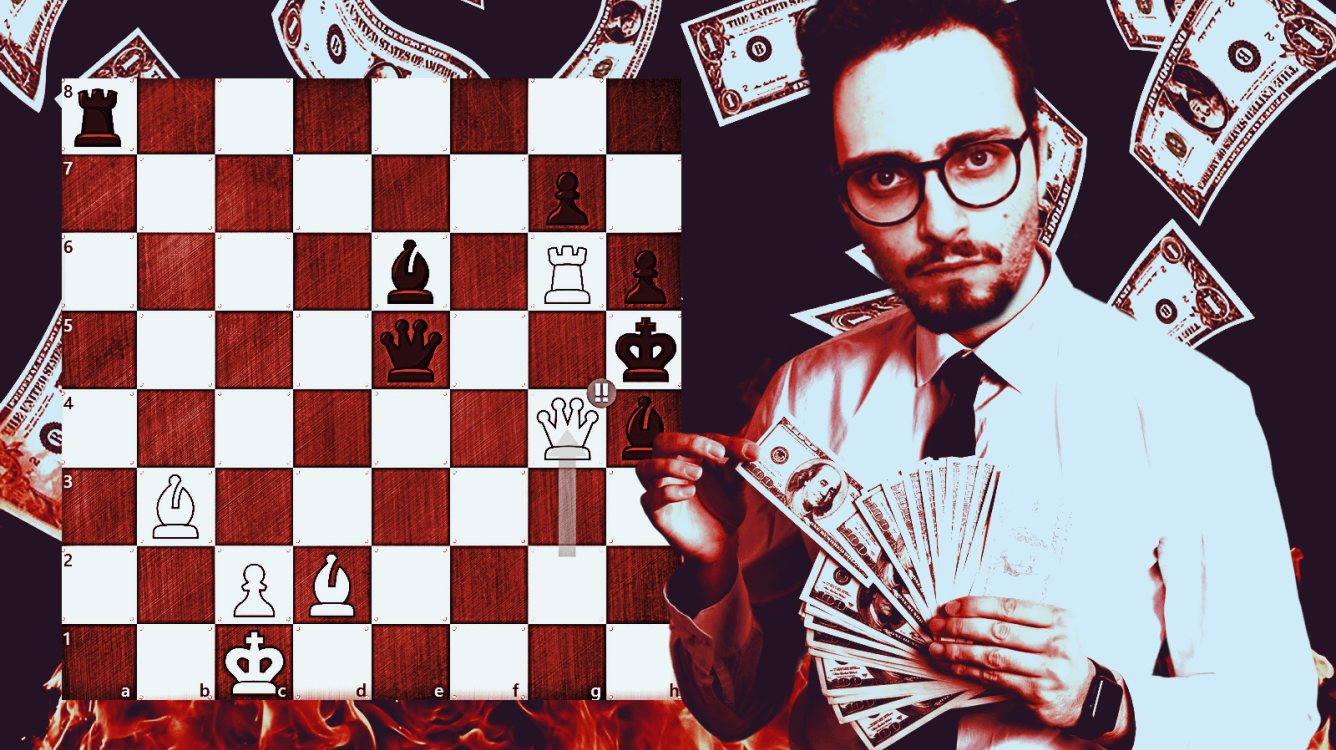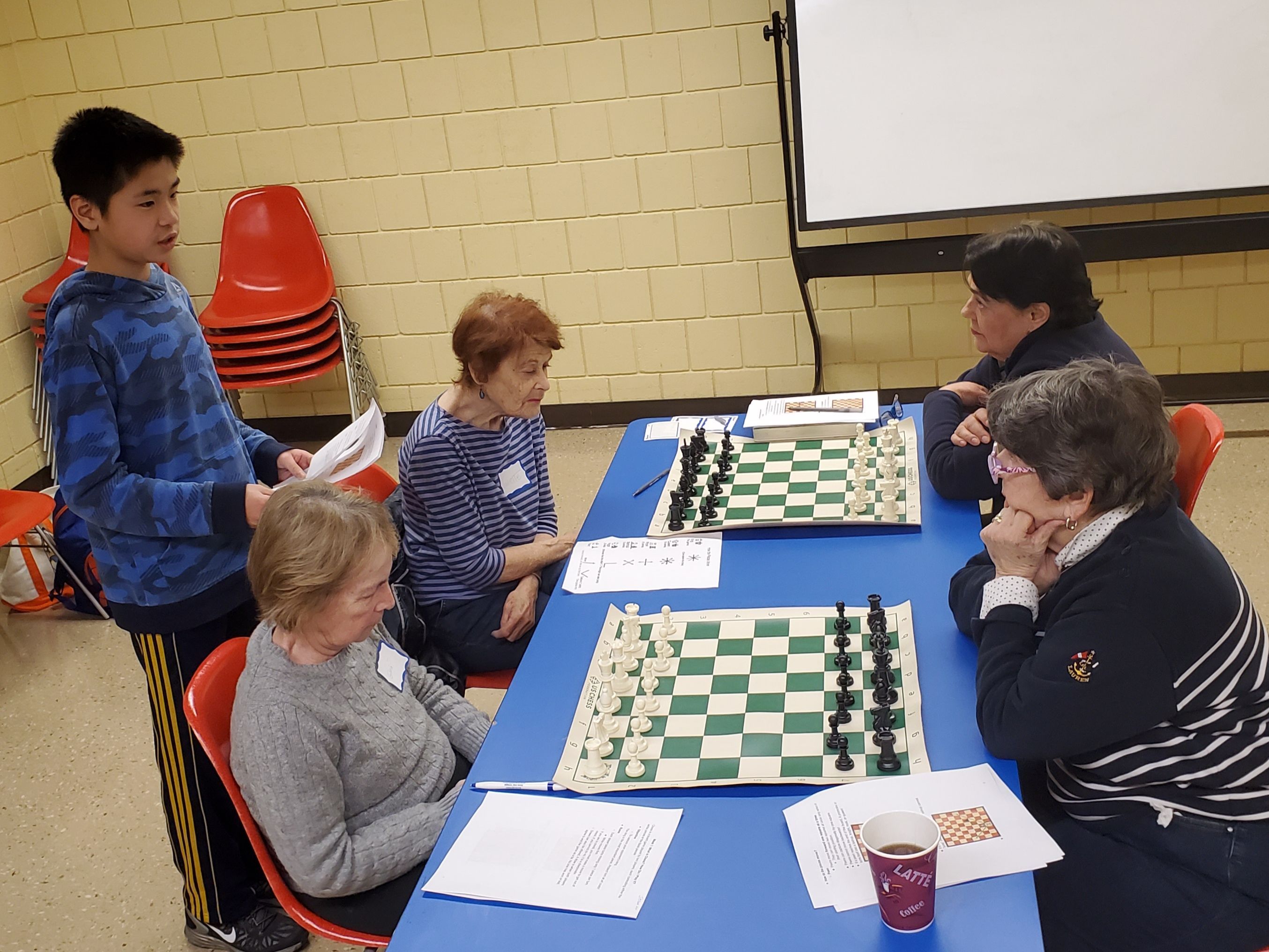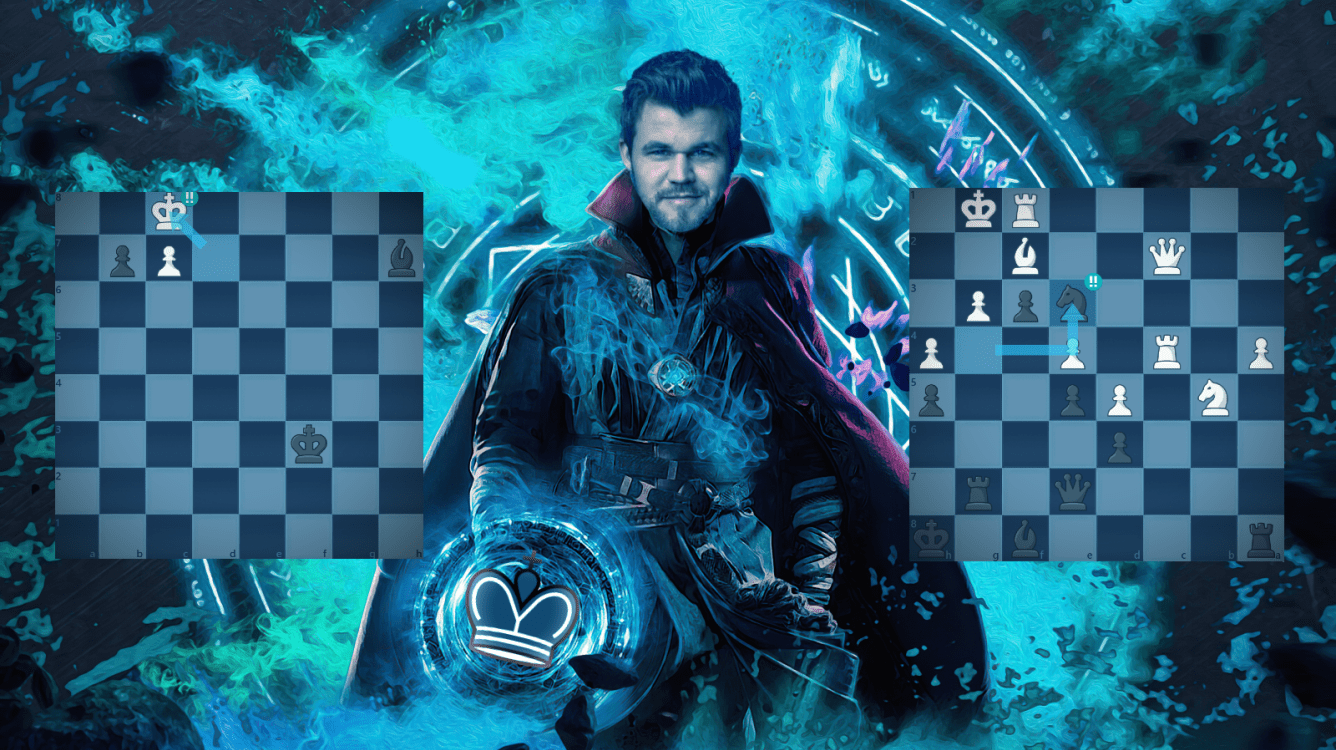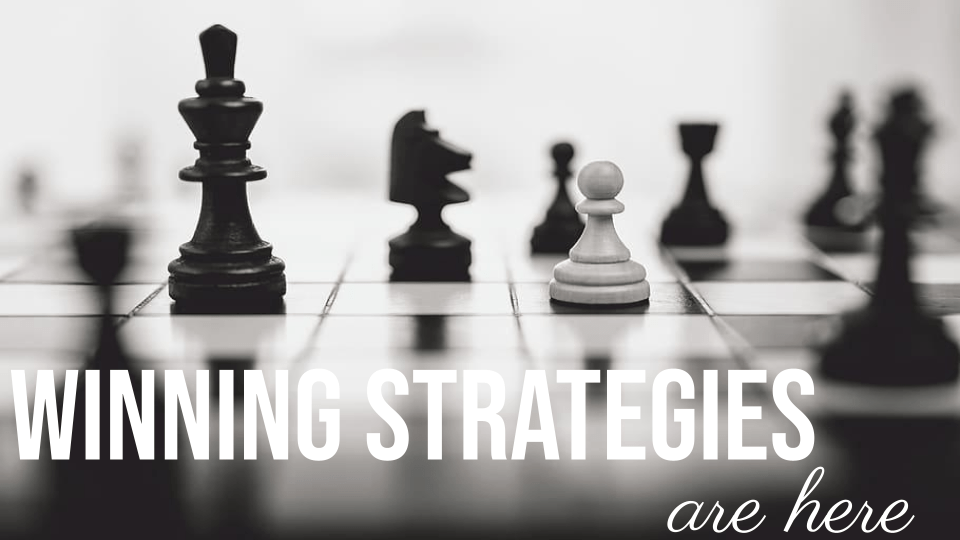
15 Ways to Make Big Gains
Chess is a struggle against rating. We tilt, and tilt, and when we move up it seems like we immediately hit a plateau. But it is possible to strike it rich and make huge progress in rating. These moments are, unfortunately, pretty rare, but in this blog, we'll try to make it happen immediately! Here are 15 ways to get big gains in rating.
- Play Long Games
- Analyze your Games
- Grab a Book
- Purchase a Course
- Take a Lesson
- Read Blogs or Articles
- Get a Coach
- Discuss with Others
- Study Master Games
- Make a Suitable Repertoire
- Practice and Review Openings
- Memorize Theoretical Endgames
- Work on Practical Endgames
- Play Blindfold Chess
- Play OTB
Blitz is fun. Really fun. But sometimes, it can hold us back from the improvement we so desperately need. Play long time controls like 30|0 and 15|10. Playing long games like these allows us to more deeply analyze the positions we find ourselves in. This increases our positional knowledge, as well as our tactical knowledge since we can visualize dubious sacrifices in our mind. Here's one that one would never find in a blitz game:
So, you've played a game. What's next? Do you smash that "Play" button once again? Well, no, you need to analyze your game first.
It only takes a minute or two to hit "Game Review" and go through your game, and it stops you from making the same mistakes over and over again in your games. If you click "Key Moments," the computer will walk you through your game and give you the chance to correct your mistakes. At the end, you'll even get a nice rating estimation of how well you played! Don't worry, though, it can be a bit generous.

This is the easy route, yet it's still much better than just grinding games. However, for even more improvement, study them without the computer! Look through the game yourself and identify what moves made you lose. This is a bit more tedious, but much more rewarding. After manually reviewing the game, you can go back over it with a computer.
Playing chess is fun and all, but improvement isn't easy. If you want to make sure you're on the right track, buy a chess book. Chess books are packed to the brim with helpful insight into the game we love, so you're really missing out if you haven't gotten one yet. Here are a few good ones:

Books are great, don't get me wrong, but sometimes it's more convenient to buy an online version. Take The Woodpecker Method, a collection of tactical positions. If you buy a hard copy, you have to visualize the tactic in your head, and then check your answer off the book. If you buy the Chessable version, they'll present the puzzles to you, and you can solve them like a Chess.com puzzle! I'm not saying that you should never get actual books, but make sure to consider their digital counterparts. Here's a beautiful combination from The Woodpecker Method:
Books and Chessable courses both usually cost money, but there are many free video lessons that offer valuable knowledge. If you want to learn strategies quickly and efficiently, watch a lesson. There are many lessons from a variety of content creators on YouTube, with @GothamChess having some of the best. Additionally, Chess.com has lessons from many titled players, and each one comes with little exercises at the end. You can even get them from the best chess players in the world!

Blogs and articles can serve as more miniature lessons compared to the ones above. Obviously, you've had experience with blogs if you're reading this, and you've probably seen at least a couple of articles too. If you want small and entertaining lessons, blogs and articles will do the trick. They speak on a large variety of topics in chess, so you'll likely find some advice you haven't heard before.
But whose blogs should you read? Well, @Avetik_ChessMood has my favorite educational content (https://www.chess.com/blog/GMAvetik), and of course my blogs are good. ![]()
The best educational articles comes from Gserper and Daniel Naroditsky, in my opinion.

Chess.com lessons are great, but what's way better is a coach in real life to give you those exercises. Hiring a coach can help you unlock the best of your chess. Of course, it's not the easiest thing in the world to get one. If you're trying to find an amazing coach, you may have to pay some steep rates. But if you find the perfect coach, it will pay off. Chess.com has a coaches page where you can find a large variety of coaches to improve your chess, so go check them out!

Unfortunately, not all of us can hire a chess master to teach us their ways. If you want an easier way to improve your path of improvement, get help from the community. Chess.com forums (watch out for trolls!) and clubs are great places to ask questions on a game or an opening you may have played, and you can go to chessable forums, r/chess, or other chess-themed forums on the internet if you want more serious responses. But don't listen to Bongcloud fans...

However, most people in forums are not titled players. How does a titled player, or better yet, a grandmaster, play their games? Studying master games allows you to grasp how grandmasters go about their plans. Planning is a large part of positional play, so analyzing master games will improve your understanding of chess. Also, if a certain grandmaster plays your favorite opening, they can guide you through what to do with said opening. If you don't have the patience for it, then you can watch someone else analyze a game, though you should just do the work. It will be much more worth it.

10. Make a Suitable Repertoire
We all dream of playing like the grandmasters in those games, but dozens of lines of theory are required for that kind of skill. While you don't need nearly as many lines memorized, you should create an opening repertoire, and it should suit your play style. Beginners should not spend much time on the opening, but higher-level players need to know what they're doing. Look at an opening explorer or a specific course (chessable has a lot of free and paid ones) on a certain opening, then slap them into some opening files.

11. Practice and Review Openings
Learning openings is good. Practicing them is necessary. If you want to take your openings, and your game, to the next level, practice and review your openings. After a game, you can review the opening that you played, and see where you forgot theory. If you played your theory to the max, you can go further. Also, make sure to look at crucial moves in the opening; positions where there's only one move that doesn't lose or that wins. Here's a few crucial moves that give you an advantage in the Jobava London:
12. Memorize Theoretical Endgames
In order to improve your game, you must study the endgame before everything else. - Jose Capablanca
Openings are useful and all, but even if you gain an advantage, you will probably need to convert it into a win in the endgame. You may have the skills to do it, but some positions can require very precise play. Study theoretical endgames to play sharp endgames correctly. Some positions have specific ideas that are necessary for a win, or even a draw, so if you don't know the theory then it could be the difference between winning and losing. If you have no endgame theory, then start with rook endgames, like the Lucena Position:
13. Work on Practical Endgames
Theoretical endgames are less known than most practical endgames, but practical endgames are more common in actual play. When studying the endgame, lean more towards practical endgames. You'll need knowledge of opposition and triangulation, as well as more advanced chess concepts. These will especially come in handy when you are trying to win with an extra pawn or draw without a pawn. Here's a game where Capablanca converts a small pawn majority into an extra piece:
When you think about improving your chess, you probably don't consider variants a very helpful tool. Sure, they're fun, but if you're trying to improve, why not play the real game that you're trying to improve at? But visualization is a major factor in determining your tactical skill, and in blindfold, you visualize everything. And tactics are one of the major determinants of how good of a chess player you are.
Chess is 99% tactics. - Richard Tiechmann
If you want to become a sharper chess player, try out blindfold chess! Obviously, there's a variant for it on Chess.com, but you can also play a less skilled opponent in real life without looking at the board and have them narrate their moves. Or you can set your piece style to blindfold! There are many ways to play blindfold chess.
Here's a blindfold puzzle! Your king is on f3 and theirs is on b5. Their pawn is on a6 while yours are on b4 and c5. Can you solve it?
Well, you have done many things to improve your chess, and you have hopefully played a lot of online games along the way. However, you have to test the skills in the real world to truly become a better player. If you are serious about chess improvement, take part in over-the-board tournaments. Online chess is acceptable, but you are missing out if you don't play real life opponents. Plus, an OTB rating is necessary for any sort of official chess title.
And when you go to a tournament, don't forget to annotate! This is required in championship sections of tournaments, but even if you aren't forced to, annotating your games and analyzing at home is the best way to improve your OTB play.

That ends the blog! We all want to improve at chess, but chess is hard. It takes time, effort, and pain to make it to the top. But hopefully, you can speed up your improvement with the tips presented in this blog. Thanks for reading, I hope you enjoyed.


